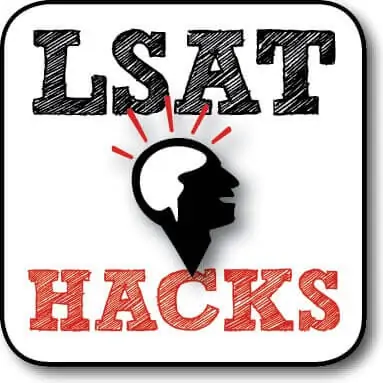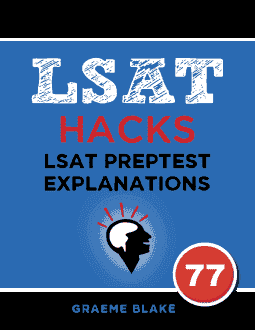QUESTION TEXT: Outsiders in any field often believe that they can…
QUESTION TYPE: Most Strongly Supported
FACTS:
- Creativity must be grounded in relevant experience, because:
- Problems solved ➞ understanding ➞ experience
ANALYSIS: I found this question hard, because I was overthinking it. It’s actually might simple. The final sentence says that to solve problems in a field, you need understanding, which requires experience.
Answer C says the above pretty directly. That’s all there is to it. Outsiders are wrong to think they can find creative solutions, because they lack experience.
I think one reason I found this hard is because I was trying to contradict the stimulus. I was thinking of real life examples where outsiders created solutions. This is not useful thinking on the LSAT. Don’t contradict the stimulus.
___________
- This doesn’t follow. Experience is necessary, true. But that doesn’t mean that more experience always leads to creativity.
It’s like how you need to breathe to take the LSAT, but more breathing than normal isn’t necessarily helpful. - Not so. Experience is a necessary condition for creativity, but creativity might be rare enough that only a small percentage of those with experience are creative.
- CORRECT. You need experience to solve problems. The stimulus’ final sentence says this.
I don’t think there’s much more to say. I found this question hard, but only because I was overthinking it. It’s actually really simple – the final sentence of the stimulus completely justifies this answer. - The stimulus say nothing of the sort. It’s quite possible that a complex domain requires more complex experience before someone can be creative.
- Not quite. It’s true that outsiders need experience for creativity. But that doesn’t necessarily mean that all responsibility requires creativity. You might be able to give an outsider responsibility in a well defined position.

Free Logical Reasoning lesson
Get a free sample of the Logical Reasoning Mastery Seminar. Learn tips for solving LR questions


To build on Graeme’s explanation, I think that last sentence is actually a necessary/sufficient claim. “Only” is a necessary condition indicator, so that final sentence can be diagrammed as: creative solutions –> person w/ experience to think them up. That maps very neatly onto answer C.
I had trouble with this one because I didn’t think that “Solving problems” is the same as “bringing in solutions”. How are those the same thing? I still chose C, but the connection just wasn’t clear to me.
You might be splitting hairs here. A solution is just a means of solving a problem. The first sentence and the rest of the stimulus imply that the solutions that are being brought in are to resolve problems in “any field”.
Thanks! I found that I’m starting to get more question wrong by over analyzing. I find it hard to distinguish when I should stop being picky.
This is a pretty common problem on the LSAT. It often comes up when an answer choice doesn’t match up exaclty with a stimulus, like in this question. A way to avoid falling into the trap of overthinking is to remember that the LSAT still calls on you to make common sense assumptions. Just because a phrase in the answer choice doesn’t match up exactly with one in the stimulus, doesn’t mean the test doesn’t treat them as synonymous. For example, “bringing in solutions” in a field, and “solving problems” are basically synonymous.
Also, it’s important to remember that, in general, there is some glaring issue with each incorrect answer choice. If you find those issues with every answer choice except one, but are questioning whether you should choose that answer choice on the basis of some tiny discrepancy between the wording of that choice and the wording of the stimulus, you’re very likely over-thinking a question.
But didn’t you also say that the LSAT tests your ability to notice small details, such as whether a word is plural or not?
Answer choice C threw me off because it used the word “creative,” which did not appear in the argument’s conclusion.
Small conceptual differences. Differences in word choice can be a conceptual difference, but don’t have to be. If the stimulus says big and the answer says large, that is the same thing.
The stimulus says “creativity” which is the same thing as creative. Even if it had just said “fresh, useful solutions” that would amount to creative solutions.
Note: This is an old comment but I wanted to clarify the point.